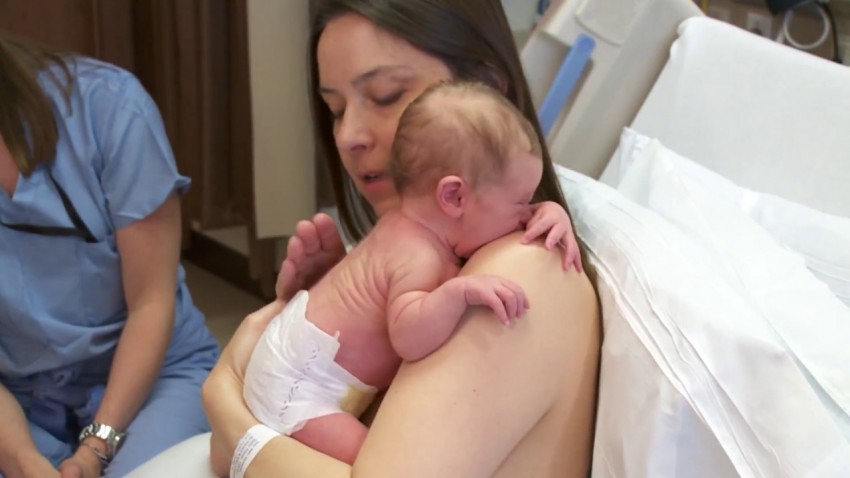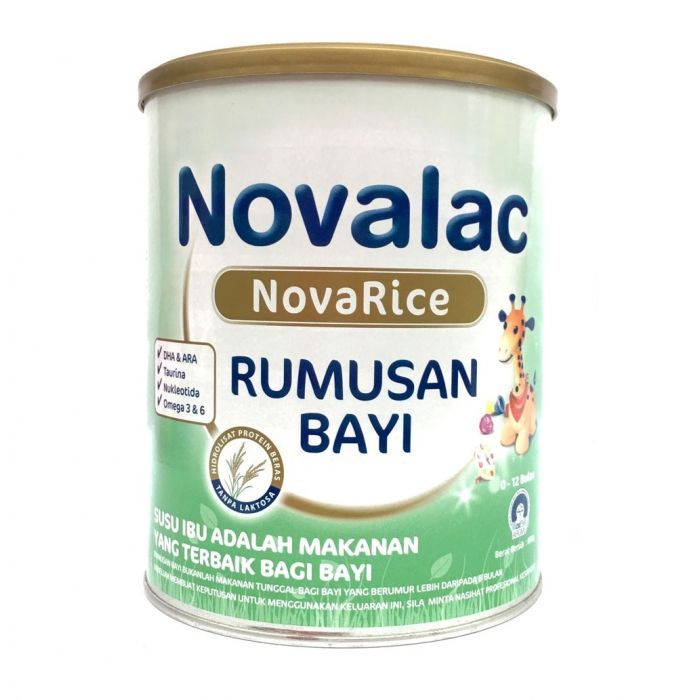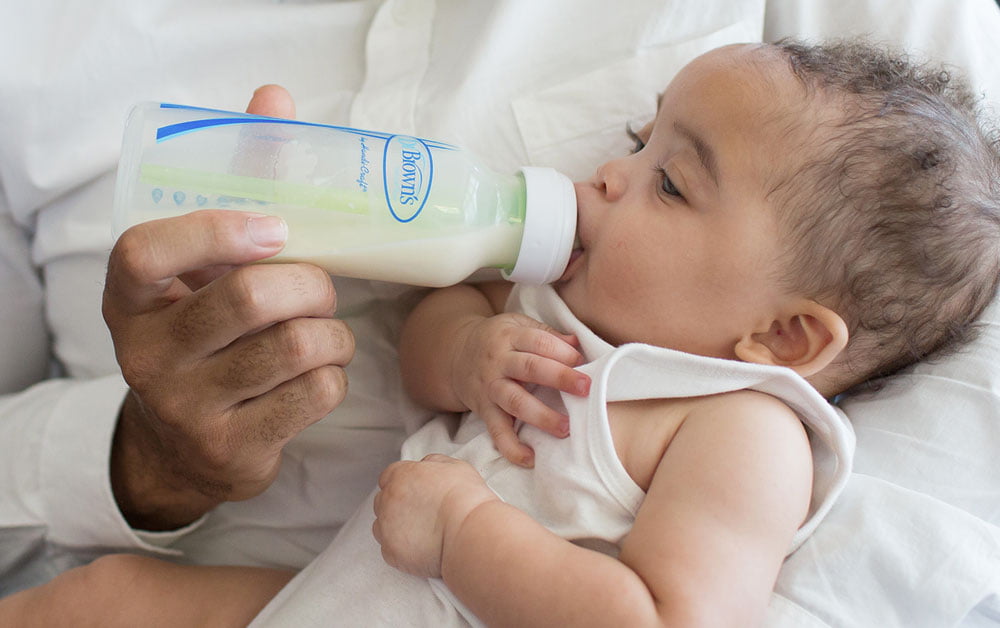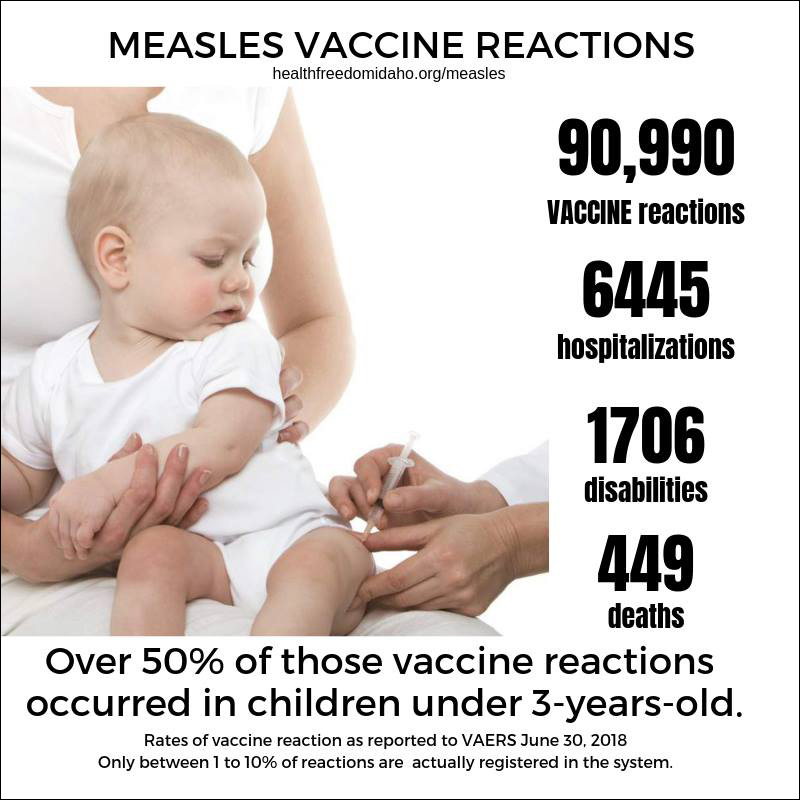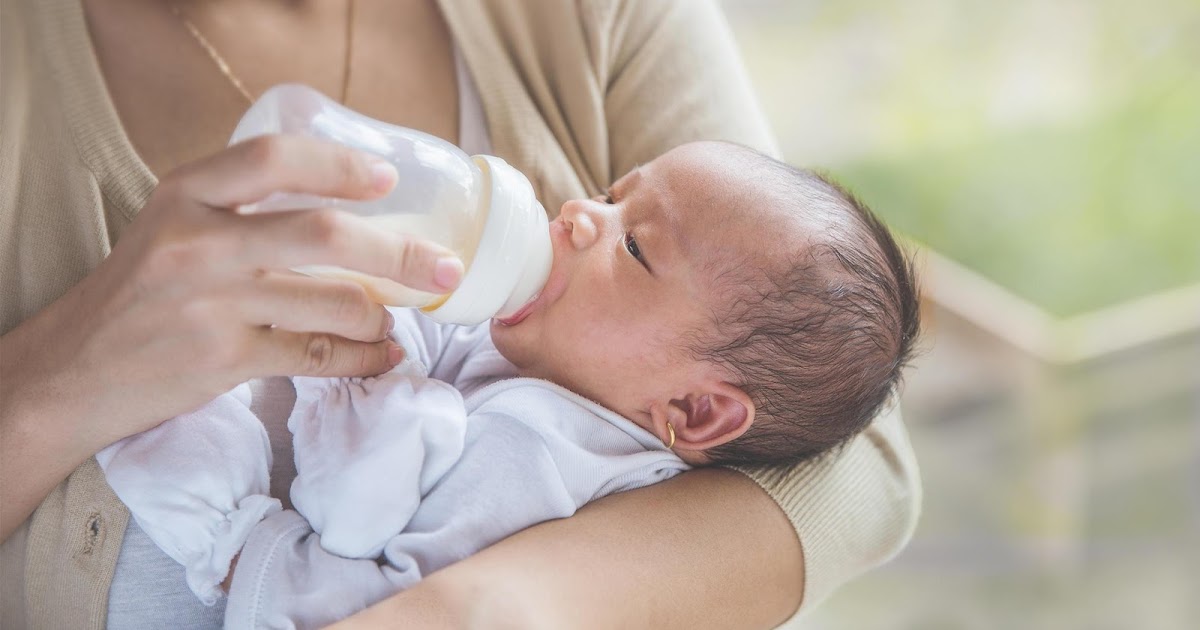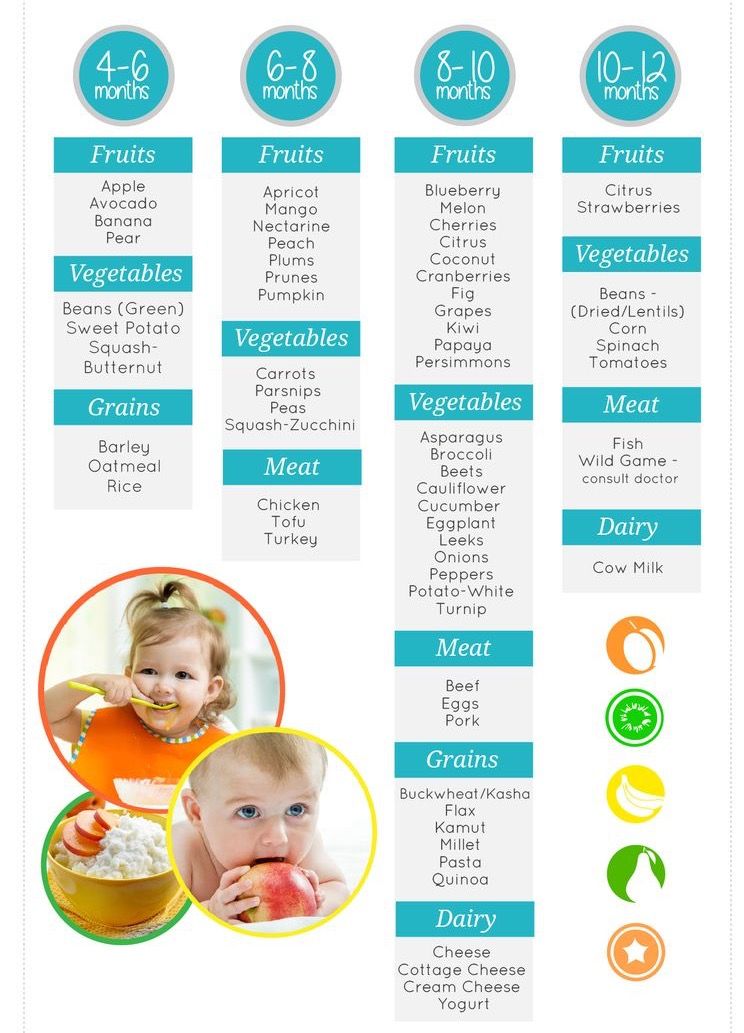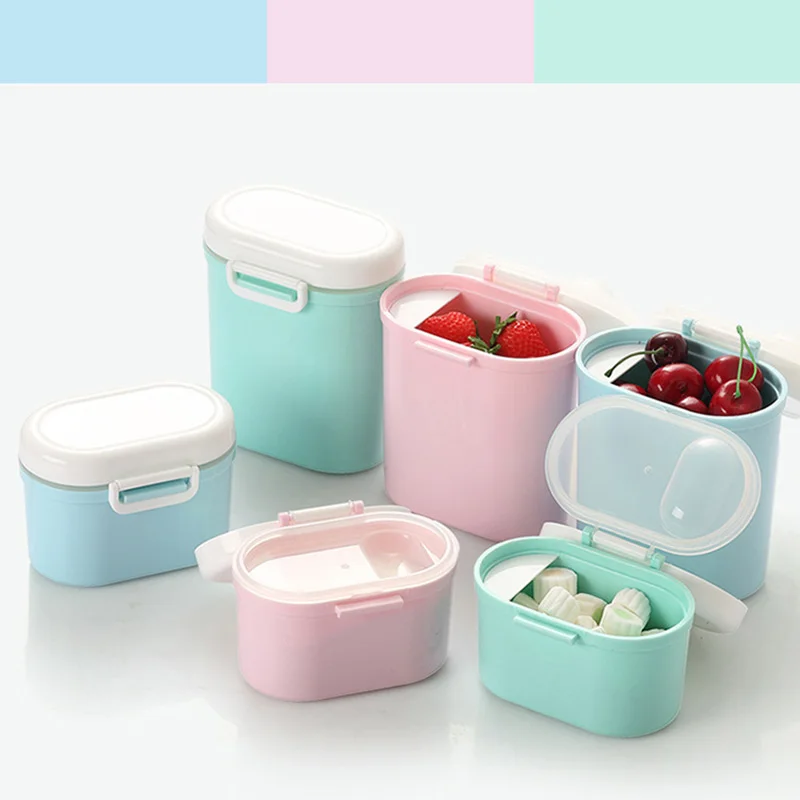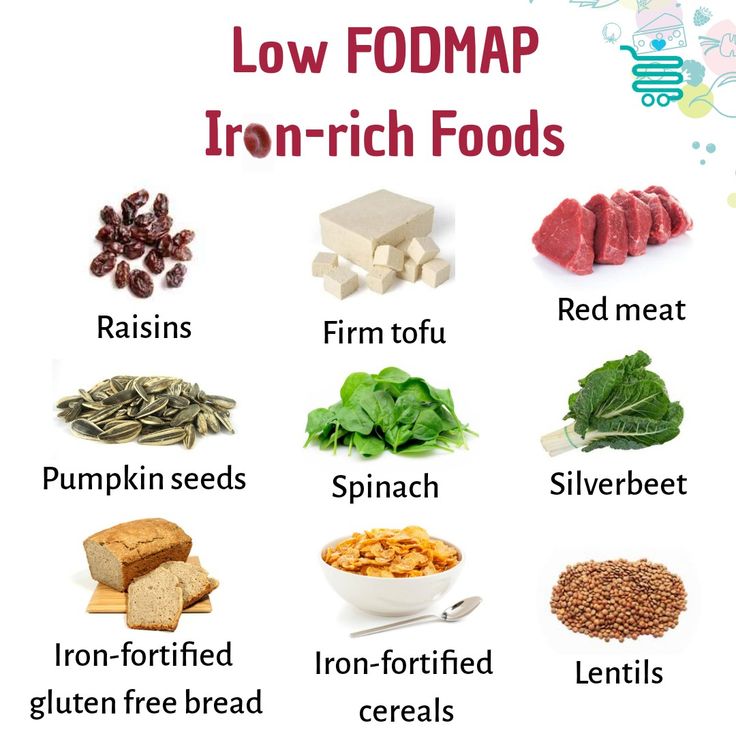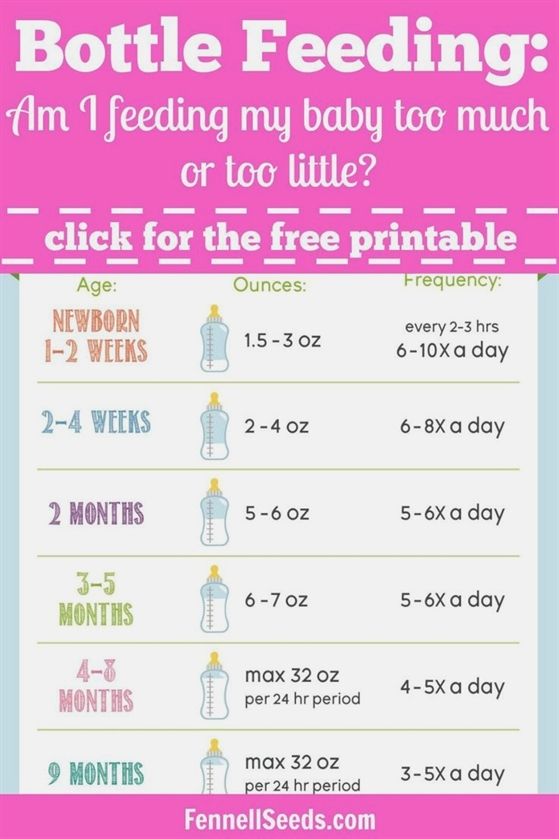Breastfed baby vomits after every feeding
Vomiting (0-12 Months)
Is this your child's symptom?
- Vomiting (throwing up) stomach contents
- Other names for vomiting are puking, barfing and heaving
Causes of Vomiting
- Viral Gastritis. Stomach infection from a stomach virus is the most common cause. Also called stomach flu. A common cause is the Rotavirus. The illness starts with vomiting. Watery loose stools may follow within 12-24 hours.
- Food Allergy. Vomiting can be the only symptom of a food reaction. The vomiting comes on quickly after eating the food. Uncommon in infants, but main foods are eggs and peanut butter.
- Coughing. Hard coughing can also cause your child to throw up. This is more common in children with reflux.
- Serious Causes. Vomiting alone should stop within about 24 hours. If it lasts over 24 hours, you must think about more serious causes. An example is a kidney infection.
A serious cause in young babies is pyloric stenosis. See below for more on this.
Pyloric Stenosis (Serious Cause)
- The most common cause of true vomiting in young babies.
- Onset of vomiting is age 2 weeks to 2 months
- Vomiting is forceful. It becomes projectile and shoots out.
- Right after vomiting, the baby is hungry and wants to feed. ("hungry vomiter")
- Cause: The pylorus is the channel between the stomach and the gut. In these babies, it becomes narrow and tight.
- Risk: Weight loss or dehydration
- Treatment: Cured by surgery.
Vomiting Scale
- Mild: 1 - 2 times/day
- Moderate: 3 - 7 times/day
- Severe: Vomits everything, nearly everything or 8 or more times/day
- Severity relates even more to how long the vomiting goes on for. At the start of the illness, it's common for a child to vomit everything.
 This can last for 3 or 4 hours. Children then often become stable and change to mild vomiting.
This can last for 3 or 4 hours. Children then often become stable and change to mild vomiting. - The main risk of vomiting is dehydration. Dehydration means the body has lost too much fluid.
- The younger the child, the greater the risk for dehydration.
Dehydration: How to Tell
- The main risk of vomiting is dehydration. Dehydration means the body has lost too much water.
- Vomiting with watery diarrhea is the most common cause of dehydration.
- Dehydration is a reason to see a doctor right away.
- Your child may have dehydration if not drinking much fluid and:
- The urine is dark yellow and has not passed any in over 8 hours.
- Inside of the mouth and tongue are very dry.
- No tears if your child cries.
- Slow blood refill test: Longer than 2 seconds. First, press on the thumbnail and make it pale. Then let go. Count the seconds it takes for the nail to turn pink again. Ask your doctor to teach you how to do this test.

When to Call for Vomiting (0-12 Months)
Call 911 Now
- Can't wake up
- Not moving
- You think your child has a life-threatening emergency
Call Doctor or Seek Care Now
- Dehydration suspected. No urine in over 8 hours, dark urine, very dry mouth and no tears.
- Stomach pain when not vomiting. Exception: stomach pain or crying just before vomiting is quite common.
- Age less than 12 weeks old with vomiting 2 or more times. Exception: normal spitting up.
- Vomited 3 or more times and also has diarrhea
- Severe vomiting (vomits everything) more than 8 hours while getting Pedialyte (or breastmilk)
- Head injury within the last 24 hours
- Weak immune system. Examples are sickle cell disease, HIV, cancer, organ transplant, taking oral steroids.
- Vomiting a prescription medicine
- Fever over 104° F (40° C)
- Fever in baby less than 12 weeks old. Caution: Do NOT give your baby any fever medicine before being seen.

- Your child looks or acts very sick
- You think your child needs to be seen, and the problem is urgent
Contact Doctor Within 24 Hours
- All other infants (age less than 1 year) with vomiting. See Care Advice while waiting to discuss with doctor.
Seattle Children's Urgent Care Locations
If your child’s illness or injury is life-threatening, call 911.
- Bellevue
- Everett
- Federal Way
- Seattle
Care Advice for Vomiting
- What You Should Know About Vomiting:
- Most vomiting is caused by a viral infection of the stomach.

- Vomiting is the body's way of protecting the lower gut.
- The good news is that stomach illnesses last only a short time.
- The main risk of vomiting is dehydration. Dehydration means the body has lost too much fluid.
- Here is some care advice that should help.
- Most vomiting is caused by a viral infection of the stomach.
- Formula Fed Babies - May Give Oral Rehydration Solution (ORS) for 8 Hours:
- If vomits once, give half the regular amount of formula every 1 to 2 hours.
- If vomits formula more than once, offer ORS for 8 hours. If you don't have ORS, use formula until you can get some.
- ORS is a special fluid that can help your child stay hydrated. You can use Pedialyte or the store brand of ORS. It can be bought in food stores or drug stores.
- Spoon or syringe feed small amounts. Give 1-2 teaspoons (5-10 mL) every 5 minutes.
- After 4 hours without throwing up, double the amount.
- Return to Formula. After 8 hours without throwing up, go back to regular formula.
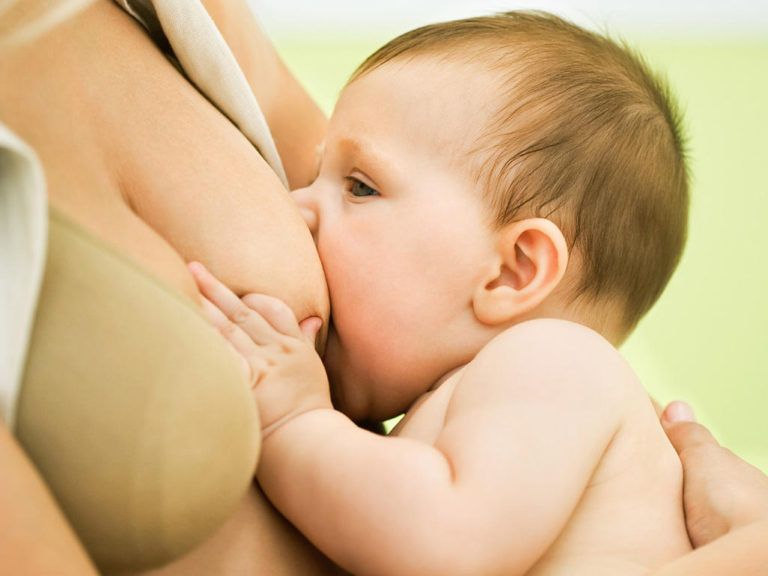
- Breastfed Babies - Reduce the Amount Per Feeding:
- If vomits once, nurse half the regular time every 1 to 2 hours.
- If vomits more than once, nurse for 5 minutes every 30 to 60 minutes. After 4 hours without throwing up, return to regular nursing.
- If continues to vomit, switch to pumped breastmilk. (ORS is rarely needed in breastfed babies. It can be used if vomiting becomes worse).
- Spoon or syringe feed small amounts of pumped milk. Give 1-2 teaspoons (5-10 mL) every 5 minutes.
- After 4 hours without throwing up, return to regular feeding at the breast. Start with small feedings of 5 minutes every 30 minutes. As your baby keeps down the smaller amounts, slowly give more.
- Pumped Breastmilk Bottle-Fed Infants - Reduce the Amount per Feeding:
- If vomits once and bottle-feeding breastmilk, give half the regular amount every 1-2 hours.
- If vomits more than once within last 2 hours, give 1 ounce (30 mL) every 30 to 60 minutes.

- If continues to vomit, give 1-2 teaspoons (5-10 mL) every 5 minutes. Only if not tolerating breastmilk, switch to ORS (e.g., Pedialyte) for every 5 minutes for a few hours.
- After 4 hours without vomiting, return to regular feedings. Start with 1 ounce (30 mL) every 30 minutes and slowly increase as tolerated.
- Stop All Solid Foods:
- Avoid all solid foods and baby foods in kids who are vomiting.
- After 8 hours without throwing up, gradually add them back.
- If on solid foods, start with starchy foods that are easy to digest. Examples are cereals, crackers and bread.
- Do Not Give Medicines:
- Stop using any drug that is over-the-counter for 8 hours. Reason: Some of these can make vomiting worse.
- Fever. Mild fevers don't need to be treated with any drugs. For higher fevers, you can use an acetaminophen suppository (such as FeverAll). This is a form of the drug you put in the rectum (bottom).
 Ask a pharmacist for help finding this product. Do not use ibuprofen. It can upset the stomach.
Ask a pharmacist for help finding this product. Do not use ibuprofen. It can upset the stomach. - Call your doctor if: Your child vomits a drug ordered by your doctor.
- Try to Sleep:
- Help your child go to sleep for a few hours.
- Reason: Sleep often empties the stomach and removes the need to vomit.
- Your child doesn't have to drink anything if his stomach feels upset and he doesn't have any diarrhea.
- Return to Child Care:
- Your child can return to child care after the vomiting and fever are gone.
- What to Expect:
- For the first 3 or 4 hours, your child may vomit everything. Then the stomach settles down.
- Vomiting from a viral illness often stops in 12 to 24 hours.
- Mild vomiting and nausea may last up to 3 days.
- Call Your Doctor If:
- Vomits clear fluids for more than 8 hours
- Vomiting lasts more than 24 hours
- Blood or bile (green color) in the vomit
- Stomach ache present when not vomiting
- Dehydration suspected (no urine in over 8 hours, dark urine, very dry mouth, and no tears)
- You think your child needs to be seen
- Your child becomes worse
And remember, contact your doctor if your child develops any of the 'Call Your Doctor' symptoms.
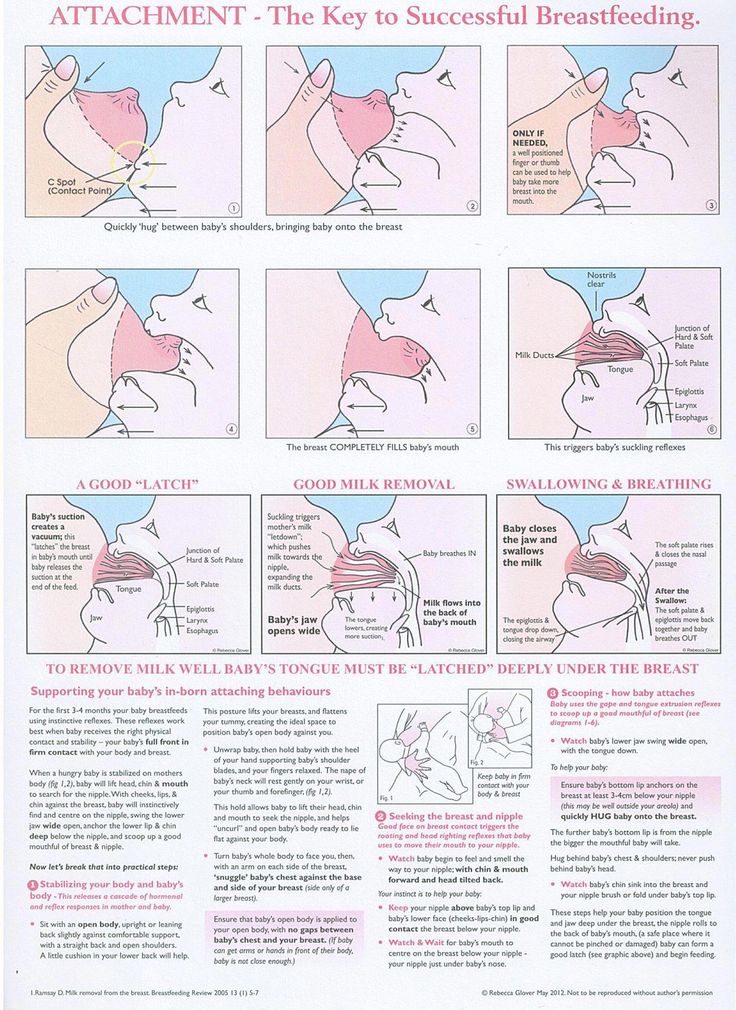
Disclaimer: this health information is for educational purposes only. You, the reader, assume full responsibility for how you choose to use it.
Last Reviewed: 12/16/2022
Last Revised: 09/21/2022
Copyright 2000-2022 Schmitt Pediatric Guidelines LLC.
Breastfeeding FAQs: Spitting Up, Gagging, and Biting (for Parents)
Breastfeeding is natural, but it takes practice to get it right. Here's what you need to know about spitting up, gagging, and other concerns during breastfeeding.
Is it Normal for My Baby to Spit Up After Feedings?
Sometimes, babies spit up when they eat too much, or when they burp or drool. Many infants will spit up a little after some — or even all — feedings or during burping because their digestive systems are immature. That's perfectly normal.
As long as your baby is growing and gaining weight and doesn't seem uncomfortable with the spitting up, it's OK. The amount of spit-up often looks like more than it actually is.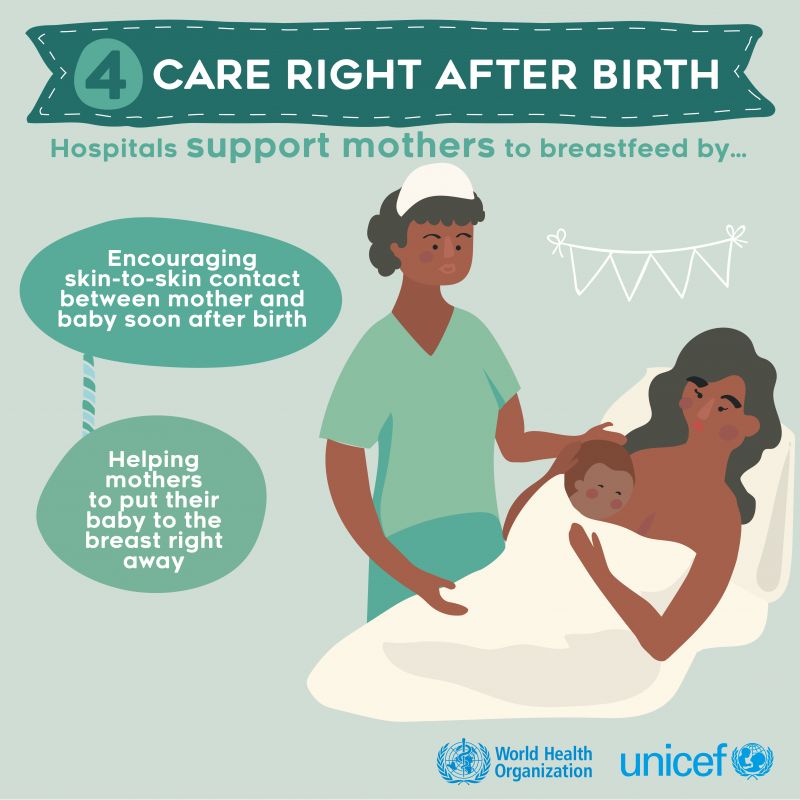 But spitting up isn't the same as forcefully vomiting all or most of a feeding.
But spitting up isn't the same as forcefully vomiting all or most of a feeding.
What’s the Difference Between Spitting Up and Vomiting?
Vomiting is a forceful projection of stomach fluids. Spitting up is a more gentle "flow" of fluids that come up. Babies don’t usually react to spitting up, but a vomiting baby will usually look upset or cry.
If you're concerned that your baby is vomiting, call your doctor. In rare cases, there may be an allergy, digestive problem, or other problem that needs medical care. It helps to keep track of how often and how much your baby is vomiting or spitting up.
How Can I Keep My Baby From Spitting Up?
If the doctor says your baby's spitting up is normal, here are some things you can do to help lessen it:
- Burp your baby after each feed from each breast. Sometimes giving smaller feeds more often can help, rather than giving larger-volume feeds.
- Keep your baby upright after feedings for at least 30 minutes.
 Holding your baby is best, since the way your baby sits in an infant seat may actually make spitting up more likely.
Holding your baby is best, since the way your baby sits in an infant seat may actually make spitting up more likely. - Don't jiggle, bounce, or actively play with your baby right after feedings.
- Keep your baby's head above the feet while feeding. Don't hold your baby in a dipped-down position when feeding.
- Raise the head of your baby's crib or bassinet. Roll up a few small hand towels or receiving blankets (or you can buy special wedges) to place under — not on top of — the mattress. Never use a pillow under your baby's head. Make sure the mattress doesn’t fold in the middle, and that the incline is gentle enough that your baby doesn’t slide down.
If your baby also gets bottles of breast milk or infant formula supplements:
- Burp after your baby drinks 1–2 ounces from a bottle.
- Don't give the bottle while your little one is lying down.
- Make sure the hole in the nipple is the right size and/or flow for your baby.
 For example, fast-flow nipples may cause babies to gag or may give them more milk than they can handle at once. Many breastfed babies do well with the slow-flow nipple until they are 3 months old, or even older.
For example, fast-flow nipples may cause babies to gag or may give them more milk than they can handle at once. Many breastfed babies do well with the slow-flow nipple until they are 3 months old, or even older.
Many babies outgrow spitting up by the time they're sitting up.
How Can I Keep My Baby From Gagging?
Sometimes the force of your milk (especially when it “lets down”) is so strong that it can cause your baby to gag and pull off of the breast. If this happens during feeding:
- Try nursing your baby in a more upright position (head above the breast). This may ease the force of the milk.
- Nurse in a side-lying position, which also might help slow the flow of milk.
- Make sure your breasts are not engorged or over-full. Nursing every 2–3 hours can help prevent engorgement. If your breasts are too full and you’re concerned about a forceful letdown, express or pump a little bit of milk a few minutes before feeding time to avoid a strong letdown.
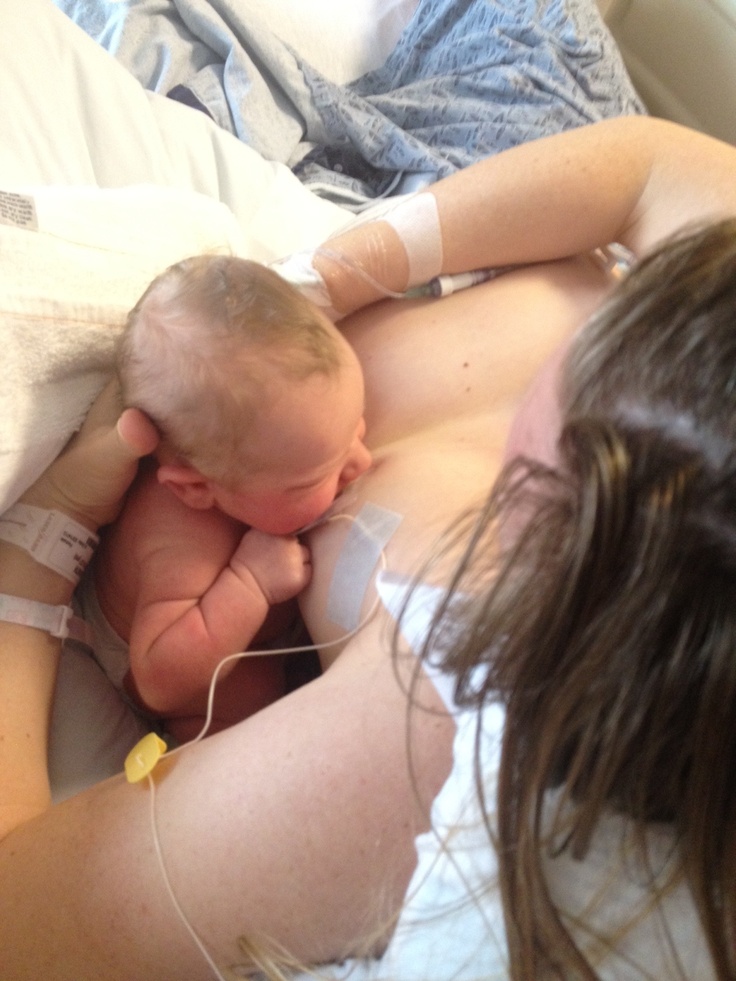
If your baby is pulling off and gagging or coughing during feeding, sit your baby up in a seated burp position. Gently pat the back to help your baby calm down before continuing feeding. If you’ve tried the steps above and this continues to happen, talk to your doctor or lactation consultant.
If your baby sometimes gags or chokes while taking a bottle of breast milk:
- Try a different nipple with a slower flow.
- Practice “paced” bottle feeding. This is where you slow down the milk flow from the bottle by holding it at less of an angle and allowing your baby to pause for breaks.
My Baby Bites During Breastfeeding. What Can I Do?
Babies will often play with their mothers' nipples with their gums, not meaning to cause any harm. But once they start teething, a baby might bite down, not knowing this is hurting mom.
Sometimes you can tell when your baby's about ready to bite down — usually when satisfied and starting to pull away from the breast. When you sense that your baby is finished feeding and may be bored or feeling playful, end the feeding. Break the suction by slipping your finger into the corner of your baby’s mouth.
When you sense that your baby is finished feeding and may be bored or feeling playful, end the feeding. Break the suction by slipping your finger into the corner of your baby’s mouth.
If your baby is already biting down, pull your baby closer to you to make it more difficult to pull off easily. Then, break the suction. React calmly without raising your voice.
Here are more ways to make baby less likely to bite:
- Before a feed, give your baby something to chew on. Make sure it's big enough that it can't be swallowed or choked on and that it can't break into small pieces. A wet washcloth placed in the freezer for 30 minutes makes a handy teething toy. Be sure to take it out of the freezer before it becomes rock hard — you don't want to bruise those already swollen gums. Wash after each use.
- Say, "Mommy is not for biting. You can bite this." Then, offer your little one a teething toy or ring.
- Praise your baby — with a hug, kiss, or cuddle — whenever they nurse without biting or trying to bite.

Usually this is enough to stop the biting, but if your baby continues, talk to your doctor or lactation consultant for advice.
Reviewed by: Jamila H. Richardson, BSN, RN, IBCLC
Date reviewed: January 2021
Why does the baby spit up after feeding?
search support iconSearch Keywords
Regurgitation is a common condition in newborns and infants and is most often a normal variant. However, it is not uncommon for parents to worry if their baby is spitting up frequently, believing that it is due to nutritional or health problems in general. Sometimes these fears are not unfounded, and regurgitation really has a pathological origin. What is its cause and when should you really consult a doctor about this? nine0003
Regurgitation - Return of a small amount of food (uncurdled or partially curdled milk) from the stomach up the digestive tract: into the esophagus and further into the oral cavity. According to statistics, at least 1 time during the day, at least 50% of babies from 0 to 3 months old can spit up, more than 60% of children 3-4 months old, and in 5% of children spit up continues up to the year 1 .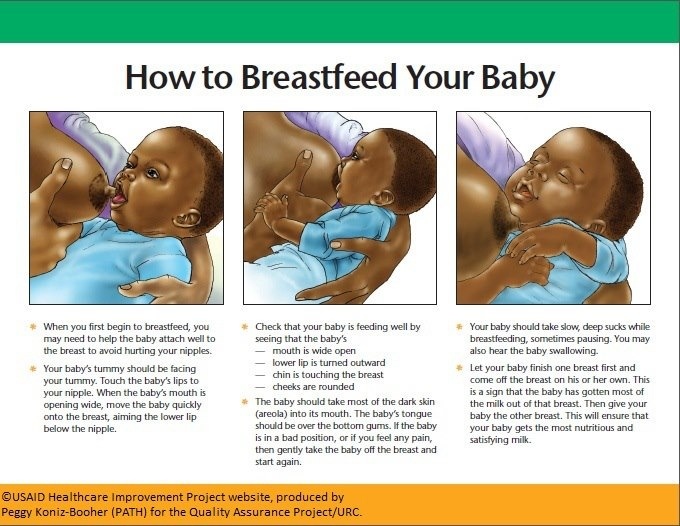
Regurgitation in newborns is considered a physiological process. It is caused by a number of factors, including:
- Features of the structure of the upper digestive tract in babies
- In newborns and infants up to a year of life, the stomach has a spherical shape. It holds a small amount of food, besides, the release from it into the duodenum is slower in comparison with children after the year 2 .
- Weakness of the lower esophageal sphincter that separates the esophagus from the stomach
- Normally, the lower esophageal sphincter should tightly "close" the esophagus, allowing food to pass into the stomach and not allowing it to enter back into the upper digestive tract. However, in young children (up to a year), the muscles of the esophageal sphincter are poorly developed, and it does not do its job very well 2 .
- Slow movement of food through the gastrointestinal tract
- The neuromuscular system of newborns is immature.
 It does not ensure the proper movement of food through the esophagus, causing regurgitation.
It does not ensure the proper movement of food through the esophagus, causing regurgitation.
One of the important risk factors contributing to regurgitation in newborns is aerophagia. This is the swallowing of large amounts of air during feedings. This happens when the baby is not properly attached to the breast, the mother has a lack of breast milk, or the bottle is in the wrong position in the child who receives the mixture. The size of the opening in the nipple also matters - if it is too large, the newborn swallows a lot of air 3 .
With aerophagia, the baby becomes capricious, restless immediately after feeding. Noticeable bloating. If the baby spits up immediately after a feed, the milk (or formula) remains practically fresh, uncurdled 3 .
Promotes regurgitation after feeding and a predominantly horizontal position of the baby during the day, combined with relatively high intra-abdominal pressure 4 . Therefore, the correct position of the baby after feeding is so important. To avoid regurgitation of an excessive amount of stomach contents, after feeding, it is necessary to hold the baby in an upright “column” position for some time (10-20 minutes), lightly patting on the back and allowing excess air to “exit”. nine0003
Therefore, the correct position of the baby after feeding is so important. To avoid regurgitation of an excessive amount of stomach contents, after feeding, it is necessary to hold the baby in an upright “column” position for some time (10-20 minutes), lightly patting on the back and allowing excess air to “exit”. nine0003
Regurgitation in many newborns can be provoked by other situations in which pressure in the abdominal cavity increases and stomach contents are thrown into the esophagus, in particular 3 :
- tight swaddling;
- stool disorders, in particular constipation;
- long, forced cry and some others.
Want to avoid common feeding problems? nine0069
Start with a baby bottle with an anti-colic system that helps you avoid common feeding problems such as colic, gas and spitting up*
How can you tell the difference between normal spitting up and vomiting?
Sometimes regurgitation is considered a manifestation of disorders in the digestive tract of children. Due to the constant reflux of acidic stomach contents into the upper sections, inflammation and other complications may develop, including growth retardation, a decrease in hemoglobin levels, and others. Therefore, it is important for parents to understand where the line is between physiological and pathological regurgitation 1 .
Due to the constant reflux of acidic stomach contents into the upper sections, inflammation and other complications may develop, including growth retardation, a decrease in hemoglobin levels, and others. Therefore, it is important for parents to understand where the line is between physiological and pathological regurgitation 1 .
If the mother is worried that her baby is spitting up, keep track of when this happens and count the total number of spit ups per day. Normally, regurgitation usually occurs after eating (the child burps after each feeding), lasts no more than 20 seconds and repeats no more than 20-30 times a day. With pathology, the problem manifests itself at any time of the day, regardless of when the baby was fed. Their number can reach 50 per day, and sometimes more 1 .
The amount of discharge during regurgitation also matters. With normal, physiological regurgitation, it is approximately 5 - 30 ml. If this volume fluctuates between 50 and 100 ml, it is already defined as profuse vomiting.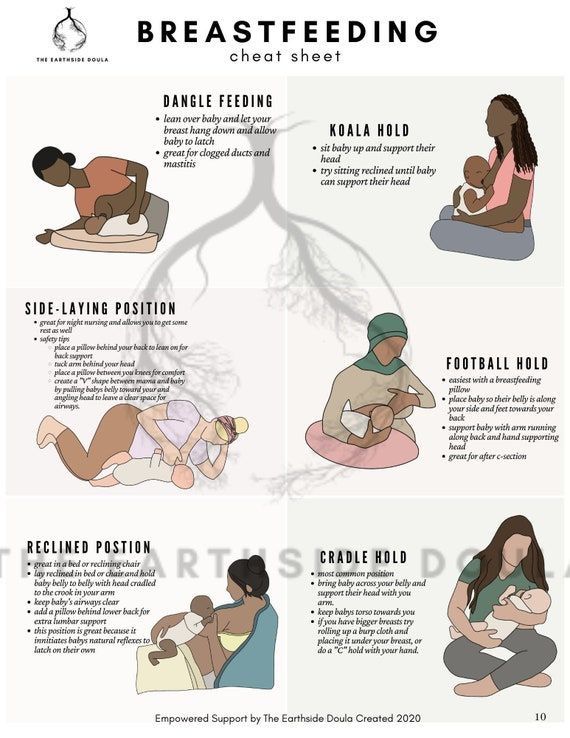 When the range of the jet of vomit is up to 50 cm, doctors talk about "vomiting a fountain." A variant of atonic vomiting is possible, when the contents of the stomach flow "sluggishly". It occurs with atony of the stomach (decrease in muscle tone of the stomach wall) and disruption of the esophagus 1 .
When the range of the jet of vomit is up to 50 cm, doctors talk about "vomiting a fountain." A variant of atonic vomiting is possible, when the contents of the stomach flow "sluggishly". It occurs with atony of the stomach (decrease in muscle tone of the stomach wall) and disruption of the esophagus 1 .
Vomiting in babies is a warning sign. Doctors are especially alarmed by repeated vomiting, a fountain, with an admixture of bile, in combination with constipation. Vomiting can lead to the development of dehydration, acid-base imbalance and other consequences, therefore, if it occurs, you should urgently contact a pediatrician to find out the cause and begin treatment. A doctor's consultation is necessary if the child is spitting up a lot (more than 15-30 ml at a time), with a frequency of more than 50 episodes per day 1.3 .
Physiological regurgitation: symptoms
Regurgitation in newborns, which is considered a normal variant and does not cause concern to pediatricians 3 :
- usually continues for a certain period of time;
- is characterized by slow, "passive" leakage; if the baby spits up a fountain, it is better to consult a doctor;
- has a sour smell of curdled milk;
- occurs without the participation of muscles - the baby does not strain during regurgitation;
- does not affect the general well-being of the baby.

How to help a newborn who spit up often?
If the baby is healthy, no medication is prescribed for spitting up. To help the child allow simple measures based on lifestyle changes and feeding.
- Frequent feeding of the baby
It is known that the baby is more prone to spit up if his stomach is full. To improve the situation, it is recommended to feed the baby more often, avoiding oversaturation, best of all - on demand 5 .
- Correct feeding technique
Every feeding, the mother must ensure that the baby does not swallow too much air during suckling. When sucking, there should be no loud, smacking, clicking sounds. You also need to control that the baby captures the nipple along with the areola.
- Choosing the right bottle and nipple
If the newborn is bottle-fed and receiving formula, it is important to choose the right bottle and nipple.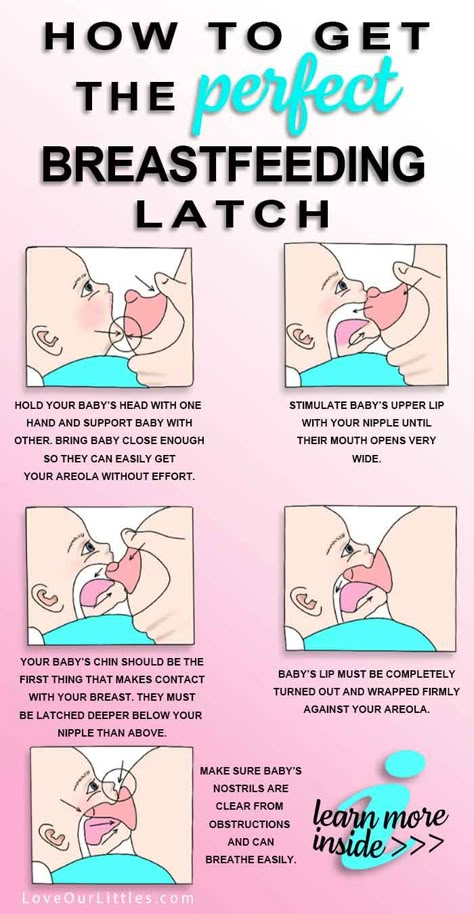 The hole in it should be such that the milk flows out in drops, and not in a stream. The nipple must not be filled with air
The hole in it should be such that the milk flows out in drops, and not in a stream. The nipple must not be filled with air New Anti-colic bottle with AirFree valve
The AirFree valve prevents air from entering the baby's stomach.
- Baby standing upright after eating
To allow air that has entered the digestive tract during meals to escape, it is important to keep the newborn upright for 10-20 minutes after feeding 4 .
- Ensure the correct position of the baby during sleep
To reduce the negative impact of the acidic contents of the stomach on the esophagus, it is necessary to put the baby to sleep in the supine position. The side or prone position, which many pediatricians used to recommend, is no longer recommended. It was found to be associated with an increased risk of sudden infant death syndrome 5 .
If parents notice alarming symptoms, such as spitting up too often or large volume, etc.
 , it is important to consult a pediatrician without delay. This will allow you to identify the real problem in time and help the baby grow up healthy and happy. nine0003
, it is important to consult a pediatrician without delay. This will allow you to identify the real problem in time and help the baby grow up healthy and happy. nine0003
References1 Zakharova I. N., Andryukhina E. N. Regurgitation and vomiting syndrome in young children // Pediatric pharmacology, 2010. V. 7. No. 4.
Nagornaya 2900 V., Limarenko M. P., Logvinenko N. G. Experience with the use of domperidone in suspension in young children with regurgitation syndrome // Child Health, 2013. No. 5 (48).
3 Zakharova IN Regurgitation and vomiting in children: what to do? //Pediatrics. Supplement to Consilium Medicum, 2009. No. 3. S. 58-67.
4 Zakharova I. N., Sugyan N. G., Pykov M. I. Regurgitation syndrome in young children: diagnosis and correction // Effective pharmacotherapy, 2014. No. 3. P. 18-28.
5 Vandenplas Y. et al. Pediatric gastroesophageal reflux clinical practice guidelines: joint recommendations of the North American Society for Pediatric Gastroenterology, Hepatology, and Nutrition (NASPGHAN) and the European Society for Pediatric Gastroenterology, Hepatology, and Nutrition (ESPGHAN) //Journal of pediatric gastroenterology and nutrition.
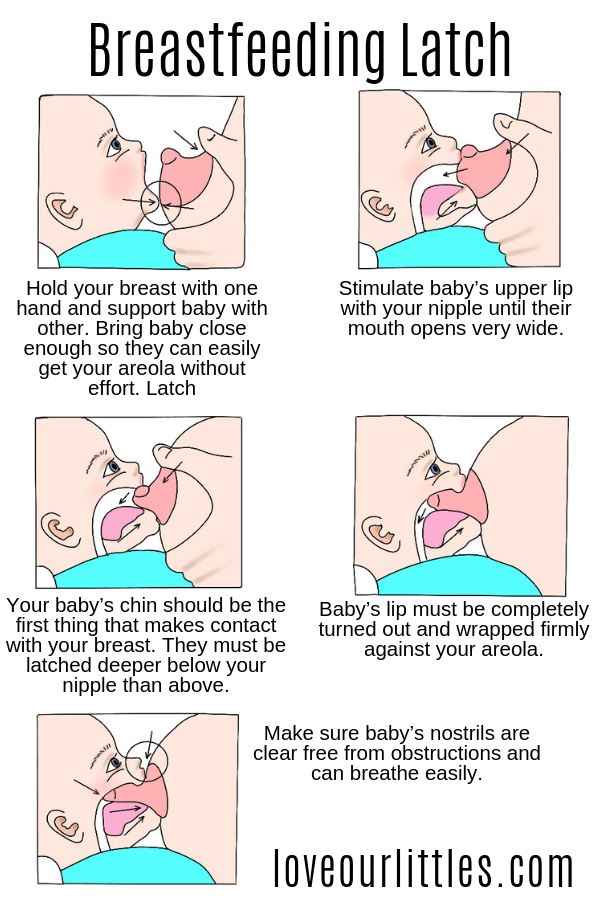 2009; 49(4): 498-547.
2009; 49(4): 498-547. You are leaving the Philips Healthcare (“Philips”) official website. Any links to third party websites that may be included on this site are provided solely as a convenience to you. Philips makes no warranties regarding any third party websites or the information they contain.
I understand
You are about to visit a Philips global content page
Continue
You are about to visit the Philips USA website. nine0003
I understand
Why does the baby spit up after breastfeeding?
Every mother has experienced this phenomenon to some extent - this is completely normal, because in the first months the baby's eating habits are just beginning to form. What are the causes of regurgitation? Can this be prevented? What is considered normal, and when should you see a doctor? Let's find out!
Dry initial milk formula adapted by Valio Baby 1 NutriValio for feeding children from birth to 6 months Read more
Follow-up dry milk formula adapted by Valio Baby 2 NutriValio for feeding children from 6 to 12 months More
Dry milk drink "Baby milk" Valio Baby 3 NutriValio for feeding children over 12 months Read more
Root causesOften the cause of regurgitation depends on the chosen method of feeding: whether the mother is putting the baby to the breast or feeding from a bottle.
 nine0003 When breastfeeding:
nine0003 When breastfeeding: - Overfeeding the baby. If the baby eats too much, then the excess milk comes out naturally.
- Incorrect breastfeeding technique, as a result of which a large amount of air enters the baby's stomach along with milk. Try to hold the baby so that he completely grasps the nipple and at the same time can breathe freely through his nose.
- Features of the digestive system of children at an early age. In infants up to a year old, the muscles of the esophagus are not yet fully formed, so regurgitation is often a natural process. nine0017
- An abrupt change in the position of the child. After feeding, do not turn the baby over, squeeze, swaddle or swing in the stroller.
- Intestinal disorders such as bloating, colic and other causes that interfere with normal digestion.
- In rare cases, serious diseases of the digestive system.
Note that regurgitation is more often observed not in newborns, but in children aged about 4 months.
Formula-fed:
- Abrupt transition from breast milk to formula.
- Inappropriate size and opening of the nipple, causing the baby to draw in a lot of air.
- Tendency to overeat. You should follow the rules of nutrition for babies.
- Inappropriate milk formula. Perhaps the child simply does not tolerate it well, consult a doctor about changing baby food.
Valio Baby's adapted milk formulas are as close as possible in composition to breast milk and contain prebiotics, as well as vitamins and microelements necessary for intestinal health. All components of Valio Baby are natural. A balanced composition allows you to maintain the level of cholesterol in the child's body at an optimal level. The mixtures are designed for three age categories, taking into account the peculiarities of the development of babies in a given period:
- from the first days of life to six months;
- for babies from six months to 1 year;
- and for children over 1 year old.

If the baby is lying on his back and starts spitting up, immediately turn him over on his stomach, or pick him up - this will prevent food from entering the respiratory tract.
If your baby seems to be uncomfortable while feeding, or if he comes off the breast and starts crying, let him burp. This can be done in two ways:
- Place a washcloth over your shoulder to keep it clean. Hold the baby on your chest so that his chin rests on your shoulder. Gently stroke or pat your hand on his back.
- Place the cloth on your lap. Turn the baby over on the tummy and position it perpendicular to your body. Support your chin with one hand and pat or rub your back with the other. Please note that the child's head should be higher than other parts of the body so that blood does not rush to it and food does not reflux into the respiratory tract. nine0017
As a rule, spitting up 6-8 times a day (in small portions) does not pose a health risk.
 Over time, when the baby's muscles get stronger, he will better absorb food. Most children stop spitting up after 6-7 months, but in some situations this problem persists up to one year.
Over time, when the baby's muscles get stronger, he will better absorb food. Most children stop spitting up after 6-7 months, but in some situations this problem persists up to one year. If the spitting up is persistent and strong, prevents weight gain, the child cries after this process, then you should consult a doctor. Such symptoms may indicate that the baby has irritated walls of the esophagus. nine0003
Call a doctor immediately if your child is vomiting violently and profusely. This may indicate either the presence of food poisoning, or a disease associated with deformation of the internal organs.
If an infant vomits with greenish bile, this may be a sign of intestinal blockage, which requires urgent hospitalization and possibly even emergency surgery.
Prevention
If your newborn is spitting up a lot after a feed, follow these guidelines:
- Do not feed your baby while squatting or in a car seat as milk or formula may not reach the stomach.

- Create a calm atmosphere. Keep noise and other distractions to a minimum. If the baby is distracted and disturbed by something, there is an increased risk that he will swallow large amounts of air with formula or breast milk. For the same reason, do not let the baby be very hungry.
- Make sure that nothing is pressing on the baby's tummy. Make sure his clothes and diaper are not too tight. nine0017
- Avoid driving immediately after feeding.
- Hold the baby for about 30 minutes. upright after eating.
- When breastfeeding, make sure that the baby is properly latching onto the breast (his lips should cover not only the nipple, but also the areola, as far as possible).
- If you are feeding formula or bottled milk, make sure the opening of the nipple is not too small as this can prevent the baby from drinking and cause air to be swallowed. The hole should not be too large, so that the child does not choke. nine0017
- Do not overfeed your baby.
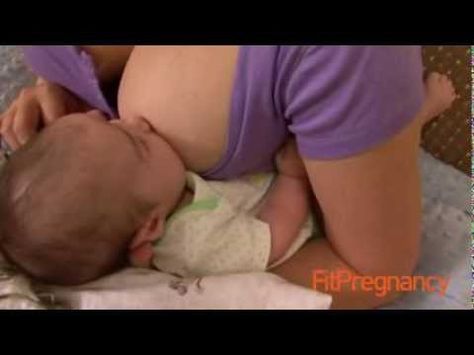 Try feeding him less milk or formula. Watch the reaction. The baby may agree to drink a smaller volume at a time, however, will want to eat more often.
Try feeding him less milk or formula. Watch the reaction. The baby may agree to drink a smaller volume at a time, however, will want to eat more often.
If regurgitation occurs frequently, after each feeding, consult your physician.
4.64 14
Power supplyShare:
print
Author: Reetta Tikanmäki
Palm oil in baby food
Infant milk formulas are made from cow's milk. However, in terms of fat composition, it differs significantly from that of the mother.
